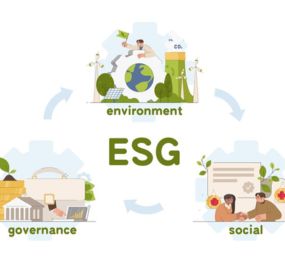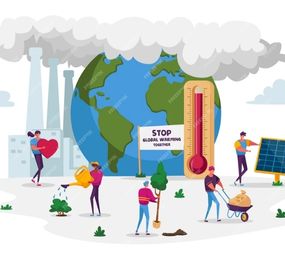Carbon offsetting has emerged as a popular strategy for individuals and organizations to mitigate their environmental impact. By investing in projects that reduce or remove greenhouse gas emissions elsewhere, the aim is to compensate for their own carbon footprint. However, the effectiveness and ethical implications of carbon offsetting remain subjects of intense debate.
Evaluating Effectiveness:
- Additionality: A core principle is "additionality," meaning the offset project must generate emissions reductions that would not have occurred otherwise. Ensuring that offset projects truly deliver incremental environmental benefits is crucial.
- Permanence: Carbon offset projects should provide long-term, durable emission reductions or removals. Short-lived or temporary reductions may not effectively address the long-term challenges of climate change.
- Leakage: Potential for "leakage" exists, where emissions reductions in one area are offset by increased emissions elsewhere. For example, a reforestation project might displace local communities, leading to deforestation elsewhere.
- Monitoring and Verification: Robust monitoring and verification systems are essential to ensure the integrity and effectiveness of offset projects. Independent third-party verification is crucial to build trust and transparency.
Ethical Considerations:
- Greenwashing: Concerns exist that carbon offsetting can be used as a form of "greenwashing," allowing companies to avoid making genuine efforts to reduce their own emissions while claiming climate neutrality.
- Social and Environmental Justice: Offset projects must not harm local communities or the environment. Respect for indigenous rights, biodiversity conservation, and equitable benefit-sharing with local communities are paramount.
- Distraction from Real Solutions: Critics argue that relying heavily on offsets can distract from the urgent need for significant emission reductions across all sectors of the economy.
The Path Forward:
- High-Quality Offsets: Focus should be on supporting high-quality offset projects that meet rigorous standards for additionality, permanence, and environmental and social integrity.
- Transparency and Accountability: Increased transparency and accountability are crucial for building trust in the carbon offsetting market.
- Prioritizing Emission Reductions: Carbon offsetting should be viewed as a complementary strategy to significant emission reduction efforts, not a substitute for them.
Carbon offsetting can be a valuable tool in the fight against climate change, but it must be approached with careful consideration. By prioritizing high-quality projects, addressing ethical concerns, and focusing on significant emission reductions, we can harness the potential of carbon offsetting while ensuring its environmental and social integrity.
For more information and registration details, visit the official website: https://www.leadventgrp.com/events/2nd-annual-world-esg-and-climate-summit/details
For more information and group participation, contact us: [email protected]
















